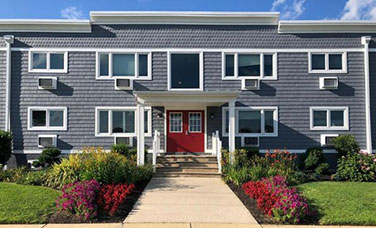Understanding and Adapting to HOA and COA Regulation Updates
by rcpmanagemedev, October, 15 2023

Living in a community governed by a Homeowners Association (HOA) or Condominium Owners Association (COA) has its perks, from shared amenities to a sense of security. However, keeping up with the ever-changing regulations imposed by HOAs or COAs can sometimes feel like navigating uncharted waters. To ensure a harmonious living environment, it is crucial to understand and adapt to these evolving guidelines. In this blog, we will delve into the art of successfully managing changing HOA/COA regulations, offering valuable insights and practical tips for homeowners and residents alike.
Embrace the Winds of Change: Why Regulations Evolve
HOAs and COAs enact regulations to maintain the community’s aesthetics, preserve property values, and foster a peaceful coexistence among residents. Over time, these regulations may require adjustments to address emerging issues, technological advancements, or community needs. It’s important to recognize that these updates are aimed at improving the overall living experience and protect the collective interests of homeowners.
Knowledge is Key: Staying Informed and Engaged
To adapt effectively, homeowners must stay informed about changes in HOA/COA regulations. Regularly review communication channels such as newsletters, official websites, or community forums. Attend HOA/COA meetings and actively participate in discussions to gain firsthand knowledge of upcoming changes. By engaging in the decision-making process, you can voice concerns, provide suggestions, and contribute to a smoother transition.
Collaborative Efforts: Building Relationships with HOA/COA Boards
Maintaining a healthy relationship with HOA/COA board members is crucial in navigating regulatory changes. Actively seek opportunities to build rapport and understand their perspective. Establish open lines of communication to address any concerns or queries regarding new regulations. A collaborative approach fosters mutual understanding, and board members are more likely to consider homeowner feedback before implementing changes.
Review and Adapt: Assessing Personal Impact
As regulations evolve, homeowners should evaluate how the changes will impact their daily lives and property. Thoroughly review new guidelines to understand the specific requirements and identify any necessary adjustments. This may involve modifications to exterior aesthetics, adherence to updated pet policies, or compliance with safety regulations. By proactively identifying potential areas of change, homeowners can ensure a seamless transition.
Seek Professional Guidance: HOA/COA Compliance Experts
Navigating complex regulations can be challenging, especially for first-time homeowners or those new to HOA/COA communities. Consider seeking professional guidance from experts specializing in HOA/COA compliance. These professionals possess in-depth knowledge of the regulations and can provide personalized advice to ensure homeowners’ compliance while maximizing their living experience.
The Power of Community: Collaboration and Consensus
Remember that you are not alone in adapting to changing regulations. Engage with fellow homeowners to share insights, experiences, and best practices. Collaborate to form committees or task forces dedicated to addressing specific regulatory changes. By pooling resources, knowledge, and experiences, you can collectively navigate the evolving landscape while fostering a sense of community.
Adapting to changing HOA/COA regulations may initially seem daunting, but with the right approach, it can be a manageable process. By staying informed, engaging with HOA/COA boards, reviewing personal impacts, seeking professional guidance, and fostering community collaboration, homeowners can successfully navigate and adapt to evolving regulations. Embrace the winds of change and proactively contribute to shaping the future of your community. Together, we can maintain a harmonious living environment that meets the needs of all residents while preserving the essence of community living.